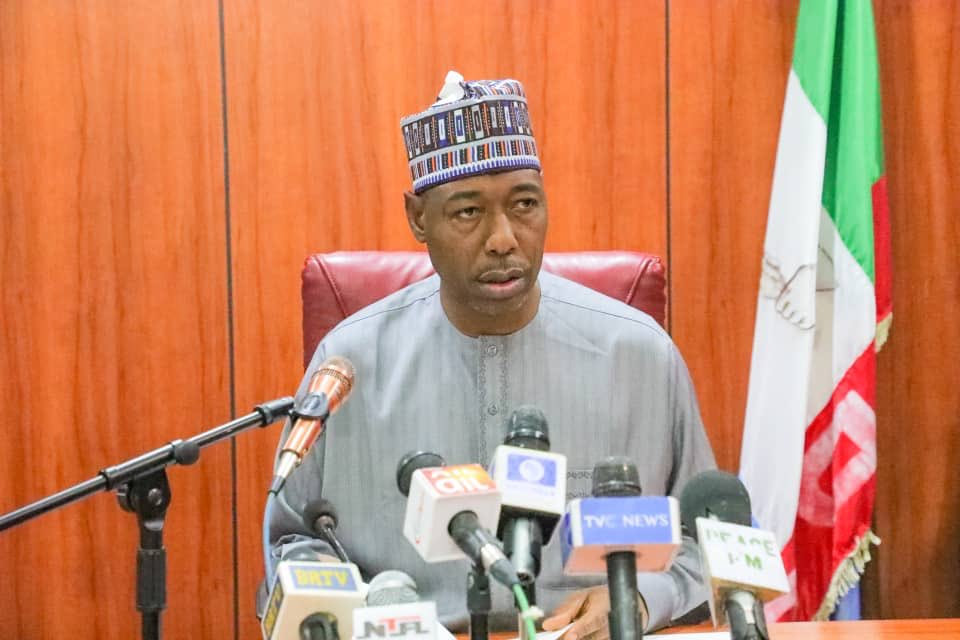Farmers in southern states have said they are beginning to have respite from incessant attacks by herders who invade their farms with cows and attack team in the process.
Speaking with The PUNCH across different states, the farmers said unlike before, attacks by herders have drastically reduced.
They linked the positive development to increased dialogue and the government’s body language, saying the herders feel they no longer have the government’s tacit support as before.
Clashes between farmers and herders had been a source of tension and violence in the southern states and the Middle Belt, often resulting in significant loss of lives, displacement, and destruction of livelihoods.
States like Oyo, Ogun, Ondo, Ekiti, Anambra, Enugu, Abia, Plateau, Benue, Nasarawa and Niger, among others, recorded fatalities in frequent clashes.
Between 2014 and 2023, the tension was fuelled by competition over resources such as land and water, as the Miyetti Allah and other nomadic groups insisted they had to feed their cattle.
The introduction of the anti-open grazing law in Benue made the situation worse, as herders unleashed war on the farmers, leaving security agencies with little or no intervention.
In the South-West states, the Yoruba Nation activist, Sunday Adeyemo, popularly called Sunday Igboho, even declared the zone no-go area for pastoralists, after clashes in the Oke-Ogun area of Oyo State.
While occasional incidents still occur, stakeholders agreed that comprehensive strategies embarked upon to curb the incidents were vital to sustaining peace and improving agricultural productivity.
The National President of South-West Commodity Farmers Organisation, who doubles as the President of the Cattle Breeders and Dealers Association of Nigeria, Segun Dasaolu, speaking with The PUNCH on Sunday, attributed the reduction of farmers-herders clash in the region to collaboration among relevant stakeholders.
Dasaolu said the signing of a Memorandum of Understanding with the Miyetti Allah Association in Ibadan sometime ago proved helpful as all the stakeholders could operate in consonance with the spirit of the signed MoU.
Speaking with our correspondent on the phone, Dasaolu said, “The magic behind the reduction in the herders-farmers clash in the South-West is generally due to the strong collaboration and regular engagement we now have among the relevant stakeholders.
“We work hand in hand with the agro rangers department of the Nigeria Security and Civil Defence Corps as well as the police. Once we are notified of any infraction, we swiftly move in to ensure that things do not degenerate into avoidable crises.
“We now engage the herders regularly, we share more understanding than it was in the past. Every stakeholder, like the farmers, the herders, the security agencies, and the government have also been working in consonance with the spirit of the MoU signed with Miyetti Allah in Ibadan.
“The only challenge we have is in the area of logistics. We fund our meetings, transportation and things like that ourselves, we wish we could get more government support in those areas.”
The Special Adviser on Security to Governor Dapo Abiodun, Olusola Subair, equally attributed the reduction in frequent herders-farmers clashes to robust engagement with all parties.
Speaking with our correspondent, Subair, a retired Assistant Inspector General of Police, said, “We have stepped up our engagement with all the parties involved, the farmers, the herders and community leaders.
“We are leveraging the support of the traditional rulers to ensure that every stakeholder does what is expected of them in such a way that our peaceful coexistence is not jeopardised, while nobody uses his or her business to disturb others.”
In Benue, the majority of the farmers admitted there was a reduction in farmers-herders conflict in the state, compared to what happened during the previous administration of President Muhmmadu Buhari.
Speaking in a telephone chat with our correspondent on Sunday, the immediate-past Chairman of the All Farmers Association of Nigeria and now state Chairman of Sustainable Agriculture, Aondoogu Saaku, said the herders no longer had the backing of the Federal Government as it used to be during the Buhari administration.
He said, “There is a sharp reduction in farmers-herders conflict in the state. This is due to some factors. One, the herders no longer have the backing of the Federal Government as they did during the previous administration.”
The former AFAN boss also said efforts by the state government to beef up security through the state security corps to complement the conventional security agencies had doused the tension.
The state chairman of the Rice Farmers Association, Sam Yuwa, corroborated this, adding, however, that out of fear and ugly experiences of the past, many farmers did not engage in farming last year.
He commended the state government for strengthening the state security outfit to complement the conventional security agencies in the state.
The Benue State Police Command, which also confirmed a reduction in the conflict, speaking through its spokesperson, Catherine Anene, said the establishment of the state security outfit helped in the area of manpower.
“The Commissioner of Police has always engaged both farmers and herders in dialogue on the need to live in peace,” she said, adding that, “Both sides, (farmers and herdsmen) are also feeling the impact of food scarcity.”
The Chairman of AFAN in Ekiti State, Mr Adebola Alagbada, hinged the reduction in the clashes on the government’s proactiveness about the issue.
The proactiveness, he said, was “through periodical meetings of the stakeholders under the aegis of herders farmers committee and the establishment of a security outfit by the state government to protect farmers.”
Alagbada said, “In Ekiti State, we have the Agro Rangers. They are working towards ensuring peace and security in the farms. We also have periodical meetings of the committee set up by the government comprising stakeholders like farmers, herders, security agents, traditional rulers etc. We have a sort of synergy among the farmers, the herders and the government. It is one of the things that sublimated the crises.”
The farmers’ chief also said when Buhari was in office, it was a kind of “let my people go”, adding, however, that the baton had changed, with everyone feeling the effects of food insecurity.
The AFAN chairman, however, said there were still some pockets of crises in Ekiti State, which he blamed largely on the effect of the climatic change on the herds.
“There has not been adequate rainfall, so herders are migrating from the Savanna belt down South here where they can have grazing land. That is why we still have it,” he said.
Also speaking, a rice farmer and the RIFAN Vice President, South-West Zone, Kolawole Rotimi, said due to the government’s proactive moves, farmers-herders’ clashes had gone down in Ekiti State.
“From experience, lately, we have been having many meetings involving farmers, herders, members of the security agencies and traditional rulers at the state government level.
“We agreed and a directive was given recently that there should not be night rearing or night movement of cows. Even during the day, cows should be confined to where they are placed and should not be moved around with underage herders.
The Chairman of the Edo State chapter of AFAN, Alhaji Bako Dogwo, said the new-found synergy between the farmer and herder helped in reducing the clashes.
“Before now, there was no synergy between the herders and the farmers in the state. So, last year, I organised a meeting between the herders and the farmers, which was part of the moves that led to the reduction of the clash.
“The herders who move from one place to another in the night, who I call cattle migrants, are the ones who destroy farms mostly. These migrants also engage in cattle rustling.
“What we also did was to ban herders from moving their cattle in the night. We have also made it compulsory that every cattle rearer or herder in Edo State must wear a special vest. The previous state government did not accept the idea but the present governor is receptive to the idea and we are happy to work with him.
“We have also made it mandatory for farmers to report the destruction of their farms by herders to the association instead of fighting,” he said.
In Ondo State, farmers attributed the reduction in clashes with herders to the proactiveness and unrelenting efforts of the security agencies in the state.
A farmer from the Eleyowo community of the Akure North Local Government Area of the state, Mr Clement Odey, commended the security agencies, particularly the men of State Security Network also known as Amotekun, for always being proactive.
“In recent times, we don’t have any crisis with herders, we thank the security agencies, especially the Amotekun in this state, they are always answering us whenever we call on them.
“In general, there has been peace here. Many herdsmen who destroyed farms were caught by Amotekun and made to compensate the farmers. This strategy has curbed their activities,” he said.
Another farmer, who simply identified himself as Alhaji Sakiru in Ikare Akoko, Akoko North-East Local Government Area of the state, said farmers now freely go to farms, as he thanked the security operatives for ensuring peace.
“Security operatives are trying their best to achieve peace between our people and the Fulani herdsmen in this area,” he said.
The National President of the Cocoa Plantation Farmers Association of Nigeria, Mr Ayodele Ojo, confirmed the clashes had reduced and urged the government to do more to protect lives and properties.
“I can confirm to you that cases of clashes between our farmers and herders have reduced drastically. We have to thank all the stakeholders for their support in achieving this.
“However, we still have records of some minor cases in some areas. For instance, one of my members called me from Ose Local Government before Christmas to report that they had not been able to go to their plantain farms due to the presence of some herders around the area.
“I think that has been checked and the farmers can now go to their farms. This is where we are calling on the government in the South West and Nigeria in general not to relent in ensuring our farms are safe,” Ojo said.
The state Police Public Relations Officer, Mrs Funmilayo Odunlami, said the peace being achieved in the rural communities of the state was a result of the Alternative Dispute Resolution strategy employed by the command, with the cooperation of stakeholders.
“The ADR has been working. There is also collaboration with other security agencies.
“All stakeholders involved from the farmers’ side have been invited and they too are collaborating with us.
“Although we still have a few incidents, the clashes have drastically reduced, and we have been enjoying peace across the state,” she said.

 1 day ago
2
1 day ago
2














 English (US) ·
English (US) ·